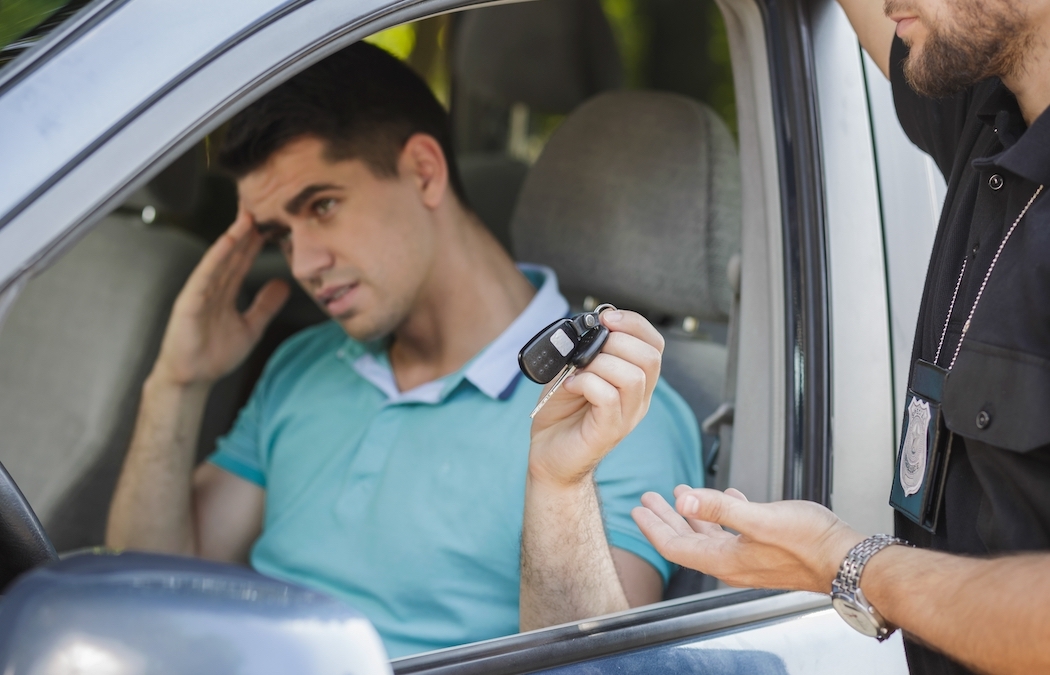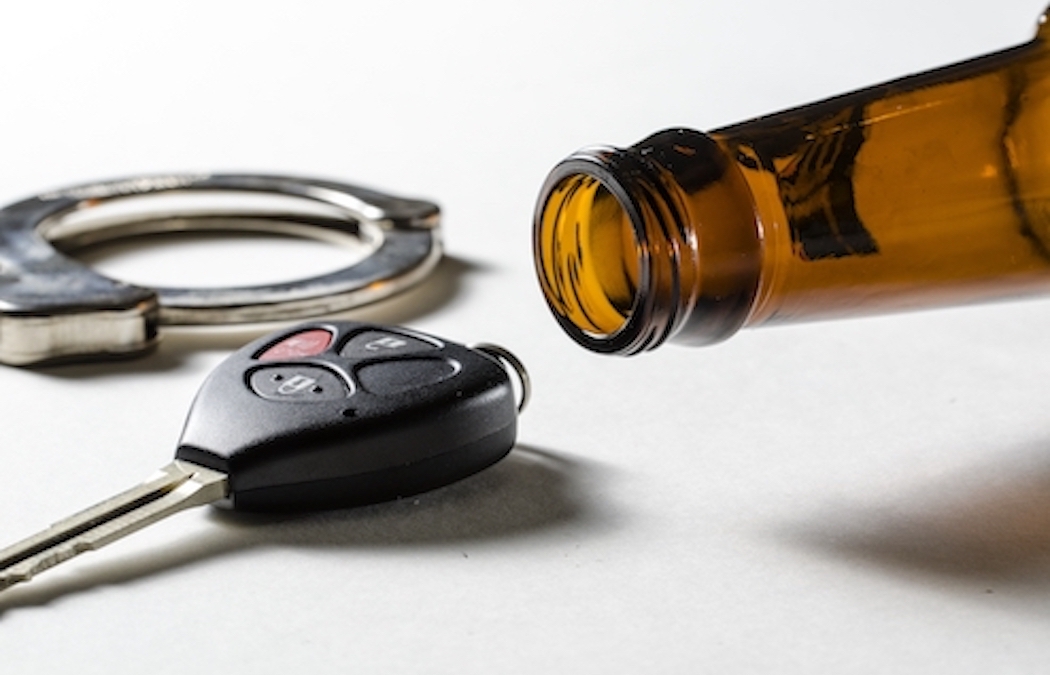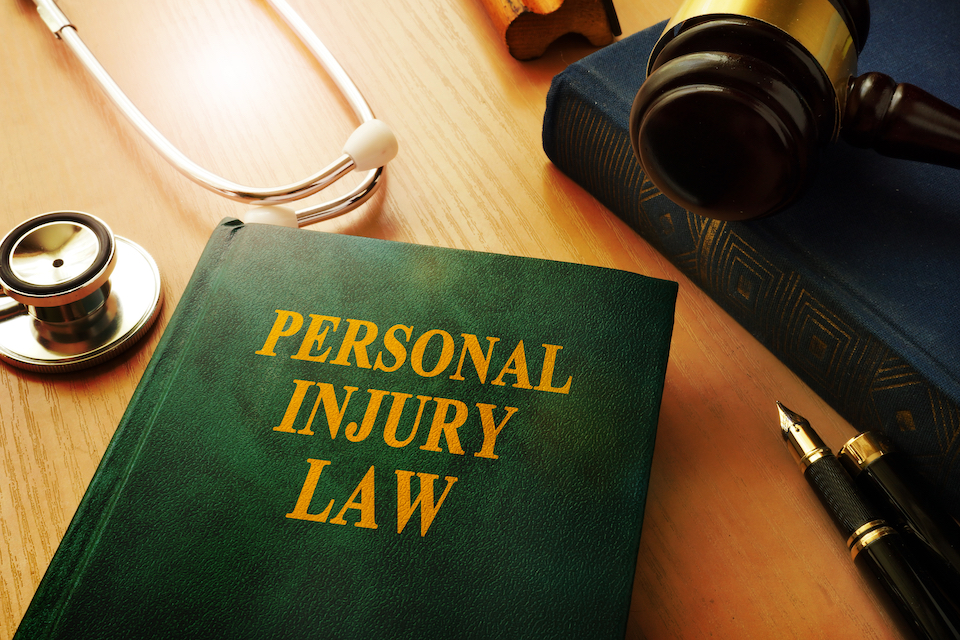
by
Damon Hopkins
|
February 20, 2019
|
Blog
What amount of medical marijuana can I have in my system and still drive in Pennsylvania without getting a DUI? The simple answer–NONE. Although Pennsylvania has made medical marijuana legal, the fact remains that Marijuana is still listed as a Schedule I controlled substance. The DUI law in Pennsylvania states that an individual may not drive, operate or be in actual physical control of the movement of a vehicle when there is “any amount of a Schedule I controlled substance” in the individual’s blood. Technically, this means that you are committing the crime of DUI if you have even the slightest amount of marijuana in your blood when you are driving.
The Dangers of Drugged Driving in Erie, PA | Driving Under the Influence of Drugs
Even if Marijuana was not still listed as a Schedule I controlled substance, driving after using medical marijuana would still be risky. Any person who drives when they are under the influence of a prescription drug, over the counter medicine, or a combination of both, which makes them incapable of safely driving is committing the crime of DUI. Some of the legal consequences of drugged driving other than receiving a DUI or other similar consequences include:
- Fines
- Reckless driving charges
- License suspension
- License revocation
- Prison time
- Loss of your marijuana card
It doesn’t matter if you took a prescribed drug, or just used a common cold medicine that you bought at the store. If the substance you ingested makes you incapable of safely driving your vehicle, you can be convicted of DUI in Pennsylvania.
Recommendations for Driving After Taking Medicines
Often, people asked, “How do I know when it’s ok for me to drive again after I used my medical marijuana or other medicines?”, the best answer is to discuss that with your Doctor because there are numerous factors that go into figuring out how long any medicine will have an effect on a person. The second best answer is to not drive until you have had a full nights sleep or at least several hours after you stop feeling the effects of your medical marijuana. This doesn’t guarantee that you couldn’t still be charged with DUI, because medicinal marijuana can be detected in your system for up to 30 days. But the longer you go after the medicinal effects wear off, the lower the risk will be of you getting a DUI. Remember to only drive when you are in total control of your ability to drive safely. If you’ve been charged with driving under the influence of alcohol or drugs, it’s in your best interest to get in touch with Damon Hopkins, your skilled DUI attorney today.

by
Damon Hopkins
|
January 29, 2019
|
Blog
DUI, Driver’s License Suspensions, and Limited Licenses Pennsylvania has created a new law which may allow persons convicted of DUI to still drive during the time that their license is otherwise suspended. Those who have been convicted of DUI, or entered the ARD program for a DUI, may be able to continue to drive their vehicle if they have an Ignition Interlock device installed and obtain an ignition interlock limited license from PennDOT. Determining if you are eligible can be tricky, as the law is very confusing. We strongly suggest you consult with Attorney Hopkins about your DUI case, and he will help you determine if you can keep driving.
Determining Eligibility for an Ignition Interlock Limited License (IILL)
Once you discover you are eligible, you must obtain an ignition interlock limited license (IILL) from PennDOT before you can drive. The application process under the new ignition interlock law can be very confusing. In order to avoid problems with your IILL application, you should follow the steps below:
- A couple weeks after your DUI sentencing, or entry into ARD, you will receive a suspension letter from PennDOT officially notifying you of the license suspension.
- Surrender your license to PennDOT. You can do this by certified mail or by taking your license and suspension letter to your local PennDOT license center. Always get a receipt.
- Select an ignition interlock vendor. I suggest you go to the Pa DUI Association website and click on the Ignition Interlock Vendors link in the middle of the homepage, or call 1-800-627-2384. Attorney Hopkins has partnered with a major ignition interlock vendor which allows his client’s to qualify for a free basic installation and first month free, when their suspension is 12 months or longer.
- Contact the vendor of your choice to schedule an appointment to install the ignition interlock device. There will be an installation fee and a monthly equipment rental fee. Installation fees may vary from vendors, so shop around. Currently, the average costs associated with renting an Ignition Interlock system is between $900 to $1,300 per year.
- Prior to taking your vehicle for the install, you need to complete two PennDOT forms: The IILL Petition (DL-9108) and Self Certification of Vehicles to be Completed form (DL-9108SC). You can download these directly from the PennDOT website.
- On the day of the install, take with you the PennDot suspension letter and the forms from step 5. Have the vendor install the ignition interlock device and complete Section D of the self-certification form (DL-9108SC). The vendor will keep a copy and return the original form to you.
- The completed DL-9108, DL-9108SC must be filed by certified mail and must include the $65 application fee, and any other required fees. Everything gets sent to the following address:
“Pennsylvania Department of Transportation Bureau of Driver Licensing Restorations Unit, Ignition Interlock License
P.O. Box 68273
Harrisburg, PA 17106-8273″
- Within 3 to 4 weeks of receiving your petition, PennDOT will inform you in writing of whether you are eligible for an IILL.
Damon C. Hopkins–DUI and Criminal Defense Lawyer
If you find yourself in need of a DUI/DWI attorney and are located anywhere in Erie County, Pennsylvania, including the City of Erie, Corry, Fairview, Girard, Harborcreek, Millcreek, North East, or any other surrounding areas, it is important to remember that you are not alone. Attorney Hopkins understand that you’re in a difficult place and need a lawyer that cares about you, your unique circumstances, and will give you honest, straightforward advice about potential outcomes and how to proceed. Having worked as a criminal prosecutor for eight years, he has the knowledge and litigation experience to provide spectacular representation to clients in need of legal assistance in criminal defense, DUI/DWI, juvenile delinquency, and traffic violations.
Contact us to schedule a free consultation for your DUI charges

by
wecreate
|
October 29, 2018
|
Blog
Were you involved in an accident where you were injured or suffered property damage? You may be able to file an insurance claim to obtain financial compensation for your injuries and other losses. Be aware that insurance adjusters–the ones deciding how much money you will receive or will be expected to pay–are trained to minimize your payout. Insurance adjusters are not inherently bad people, but the fact remains that their employers concern themselves with one thing, and that is profit. As a result, your insurance adjuster cannot always be trusted to look out for you.
Attorney Damon C. Hopkins is an experienced insurance claim lawyer that has helped clients settle insurance claim disputes for over 21 years. Attorney Hopkins works hard to help his clients understand what is happening throughout the insurance claim process, and makes sure that you, the victim, receives a fair and timely compensation.
Understanding Types of Personal Injury Insurance Claims
There are two types of insurance claims you can file for: first-party claims, and third party claims. The type of claim you file for will depend on who was at fault in the accident, the type of accident that occurred, and the extent of your insurance coverage. If you caused an accident while driving, you should file a first party claim with your auto insurance provider. However, if you were hit by a vehicle while in the passenger seat or walking along the street, you can file a third party claim with the driver’s auto insurance. If you were injured while shopping in a store or eating at a restaurant, you can also file a third party claim with the business’ insurance company.
First Party Insurance Claims
A first party insurance claim is between the insurance company and the policyholder. These claims are contractual by nature and are contingent on the specific language of the insurance policy. A first party insurance claim, for example, could result from a homeowner suffering from fire damage. In this case, the homeowner will make a claim with their insurance company to cover the damage and repairs. The insurance company will compensate the homeowner according to the insurance policy. In order to make sure you understand what is in the policy agreement, call Damon Hopkins, a respected insurance claims lawyer in Erie, PA. Attorney Hopkins will fight to make sure you get every dollar that you deserve from insurance companies to compensate you for the pain, suffering, discomfort, lost wages, expenses, and aggravation that comes from being seriously hurt in an accident.
Third Party Insurance Claims
While a first party insurance claim is one you file with your own insurance company, a third party insurance claim is one you file with the insurance provider of another person or business. The insurance claim is made by someone who is not the policyholder or the insurance company. The most common type of third-party insurance claim are liability claims. For example, if you cause an accident on the highway and injure a passenger, that passenger can file a claim against your insurance company. In this case, because there is no contract between the insurance company and the injured passenger, the passenger is entitled to make claims for things that may not be covered under the insurance policy. Things such as:
- Medical Expenses
- Loss of Wages
- Compensation for Pain and Suffering
A third party claim is commonly referred to as a liability claim because someone else is liable for the injuries suffered by the third party.
Before the insurance company offers you a first or third party settlement, the claims adjuster needs proof that the insured party was negligent, and that your injuries are severe enough to qualify for a settlement. The claims adjuster will investigate the facts of your case. To make sure your insurance claim isn’t denied and that you are getting an adequate amount for your settlement, call Damon C. Hopkins to evaluate your insurance claim.
Call Attorney Hopkins–Car Accident & Insurance Claim Attorney
When an accident or some other incident causes an injury, in most situations, someone’s insurance coverage will apply to the situation. In that case, there’s a good chance that the injured person’s medical bills and other losses stemming from the accident will be fully paid for out of that coverage, up to the dollar limits of the policy. In many instances, an injury-related insurance claim–a first party or a third party insurance claim–resolves as a settlement agreement without a lawsuit ever getting filed. In other words, many more injury-related insurance claims are filed than actual court-based personal injury cases. But sometimes it isn’t always that easy.
Some clients believe that getting an attorney involved with insurance claims is something only done as a last resort due to potentially escalating the issue at hand. However, you should call an insurance claim attorney before or immediately after a claim has been reported. Involving an attorney can ensure that the claim is filed properly and that any adjustments have been made to avoid the need for litigation. An insurance claim lawyer like Damon C. Hopkins also evaluates insurance claims to prevent any wrongful denials of coverage.
Aside from personal injury insurance claims, Attorney Hopkins provides legal services for personal injury litigation. Personal injury litigation cases can occur from nearly any type of accident. Before accepting a case, accident attorney Damon Hopkins will learn the fine details of your situation and determine if you have grounds for pursuing legal action. If you have been hurt in an accident, through no fault of your own, you are entitled to seek financial compensation from the at-fault party. As your experienced injury attorney in Erie, North East, and Corry, PA., Damon C. Hopkins will fight to see that you receive the best recovery possible to compensate for your pain and suffering, medical bills, and lost wages.
Insurance Claim and Personal Injury FAQs
Can First Party Insurance Claimants File a Lawsuit?
Yes! Even though coverage under a first party insurance policy is specified in the contract, insurance companies do not always pay out everything they are required to by law. In the insurance industry, this is referred to as bad faith insurance practices. In the case of bad faith insurance practices, it is often necessary to file a lawsuit.
How Do I Know If I Have a Personal Injury Claim?
Whether a Personal Injury claim (a “tort”) exists is a matter of law. Four elements must be present for a personal injury insurance claim to exist:
- The “at-fault” person is under a duty to do or not to do something
- The “at-fault” person breaches that duty
- You suffer Damages
- Your Damages are the result of the “at-fault” person’s actions
I’m A Working Person, How Can I Afford An Attorney?
In most Personal Injury cases, an attorney will accept a case on a contingent fee basis.
What Is A Contingent Fee?
A fee is contingent when it is conditioned upon your attorney’s successfully resolution of your case. And is often referred to as: “No fee unless you win.” However, the client is generally responsible for the “out-of-pocket” costs of litigation.

by
Damon Hopkins
|
August 1, 2018
|
Blog
In order to obtain a Protection from Abuse Order (PFA) in PA, the following steps must be completed:
- Must fall under the qualifications of obtaining a PFA in Pennsylvania
- Fill out a request for a PFA at your County’s PFA office
- Appear briefly in person before a judge who will grant or deny your PFA on a temporary basis
- Attend the Final Hearing on your PFA where you & your attorney present evidence OR the defendant consents to the granting of the PFA
The PFA process is intended to provide relief for a victim from his or her abuser. Many individuals relate Protection from Abuse Orders (“PFA”) to Restraining Orders. In fact, those terms are often used interchangeably. However, the PFA process is not considered part of the criminal system, and a restraining order is. While criminal charges can come from actions leading to a PFA, the PFA process itself is civil. Attorney Damon C. Hopkins has dedicated over two decades of his life to serving those involved with PFA’s, needing to get a PFA, or defending people who have been wrongfully accused and been served a temporary PFA in Erie, Harborcreek, Cory, Girard, and surrounding areas in PA. As a PFA attorney, Damon C. Hopkins has experience working with the PFA laws in Pennsylvania and devotes his time and effort to find the best solution for every case.
What are the Requirements to Obtain a PFA in Pennsylvania?
There is a common misconception that any individual can obtain a PFA against another individual. In reality, only a specific group of people can obtain a PFA against someone who harasses them. PFA’s are administered under two Pennsylvania statutory sections, which determines the PFA’s reach and limitations. The two Pennsylvania statutory sections are:
- “Domestic Abuse” situations
- “Sexual Violence by a Stranger” situations
Domestic Relations
Pennsylvania law, specifically 23 Pa.C.S. Section 6102, defines “Abuse,” “Victim,” and other terms for the reader to clearly understand the text of the law. With doing so, the Protection from Abuse statute dictates who can request a PFA in PA. In order to obtain a PFA, the abuser must have been one of the following to the victim:
- A family or household members
- A sexual or intimate partners
- A person who share biological parenthood
Thus, the “Domestic Relations” section does not allow a PFA to be ordered against a stranger, co-worker, etc.
Section 6102 also dictates under what circumstances a PFA can be given. In Pennsylvania, a PA PFA can be given only when the perpetrator has engaged the victim in one or more of the following:
- Attempting to cause or intentionally, knowingly or recklessly causing bodily injury, serious bodily injury, rape, involuntary deviate sexual intercourse, sexual assault, statutory sexual assault, aggravated indecent assault, indecent assault or incest with or without a deadly weapon.
- Placing another in reasonable fear of imminent serious bodily injury.
- The infliction of false imprisonment pursuant to 18 Pa.C.S. Section 2903 (relating to false imprisonment).
- Physically or sexually abusing minor children, including such terms as defined in Chapter 63 (relating to child protective services).
- Knowingly engaging in a course of conduct or repeatedly committing acts toward another person, including following the person, without proper authority, under circumstances which place the person in reasonable fear of bodily injury. The definition of this paragraph applies only to proceedings commenced under this title and is inapplicable to any criminal prosecutions commenced under Title 18(relating to crimes and offenses.)
Sexual Violence by a Stranger
Pennsylvania broadened its PFA law on July 15, 2015, through statute at 42 Pa.C.S. section 62A01. Section 62A01 protects victims of “sexual violence” or “intimidation.” “Sexual violence” is defined as “conduct constituting a crime under any of the following provisions between persons who are not family or household members.” Meanwhile, “intimidation” is defined as “conduct constituting a crime under either of the following provisions between persons who are not family or household members”(Pennsylvania General Assembly.) “Sexual violence” and “intimidation” relates to various sexual crimes and covers sexual crimes that occur outside of family or household members, which the domestic relations section does not address. In short, unlike domestic relations situations, sexual violence by a stranger situations protects non-family or household members.
The Process of Requesting a PFA in Pennsylvania
The process for obtaining a PFA in Pennsylvania is relatively quick. Nevertheless, each county follows a different process to receive a PFA order. For example, Erie County in a non-emergency situation will have a victim go to the PFA office and request a Protection from Abuse Order. A judge will determine to grant or deny a temporary Protection from Abuse Order. Whether denied or granted, the victim and the alleged perpetrator will have a right to a hearing for a final determination to be made. Assuming a temporary order is issued, the temporary PFA will last up to 10 days, within which time a Judge schedules a final hearing where both sides will present their positions and evidence. To obtain a PFA in Erie County, PA, go to Erie County’s Office of Protection from Abuse.
Advantages of Consenting to a PFA
It is important to note that the two parties, typically through their attorneys, can avoid a PFA hearing and agree to the terms and length of the PFA, the maximum still being three years. Reaching an agreement without a trial can benefit both the victim and the perpetrator. The victim does not risk the Judge dismissing the PFA, obtains a court order making the PFA final for his or her protection, and avoids having to testify. The alleged perpetrator does not admit to any of the underlying PFA facts and is merely agreeing to stay away from the victim. Overall, PFA’s can have significant effects on both the victim and the alleged perpetrator’s life. Contact Attorney Damon C. Hopkins for an experienced PFA Lawyer to represent you in Pennsylvania.
Choosing PFA Attorney Damon C. Hopkins
Attorney Hopkins understands that each PFA case is unique and he takes the time to understand your particular situation and will develop solutions that meet your needs. As both a fighter and fixer, Damon C. Hopkins possesses a sophisticated legal knowledge that allows him to handle a wide range of legal matters. If you find yourself in need of an attorney to help obtain a PFA or defend against one, and are located anywhere in Erie County, Pennsylvania, including the City of Erie, Corry, Fairview, Girard, Harborcreek, Millcreek, North East, or any other surrounding areas, it is important to remember that you are not alone. At Hopkins Law, we understand that you’re in a difficult situation and need a PFA lawyer that cares about you and gives you honest, straightforward advice about potential outcomes and how to proceed.







